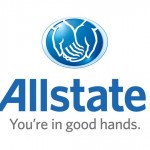When you go to an errors and omissions (E&O) education program, inevitably, the message contains something like this: “Do not advise that you are a professional or a specialist or otherwise create higher standards of care.” Also, “The agency is not responsible for advising clients of coverages, searching the market for every possibility, etc., etc., etc.”
My personal favorite book on insurance law is, “Understanding Insurance Law” by Robert Jerry II and Douglas Richmond. It is now in its 6th edition. For those who are interested or need a solid reference book, I highly recommend this one. One of the key points the authors make over and over again is that each case stands on its own. Therefore, do not take your instructor’s word that you will always win. Also, if your goal is only to win rather than avoid E&O claims, you might win the battle, but you’ll lose the war. Good luck with that.
In the chapter on agents’ standard of care/professional duty, which is a must read for all those setting their agency’s standard of care procedures, the authors discuss and provide immense case law regarding the dangers of holding oneself out as an expert, professional, specialist, etc. For now, the argument is settled. Holding oneself out as an expert is dangerous.
The book then discusses the liability of agents for failure to explain coverages or advise on what coverages clients need. Lots of case law exists reinforcing that in the absence of holding oneself out as an expert, an agent’s duty to explain and advise is limited. I can hear the cheers from some readers yelling, “Awesome! I don’t have to know coverages!”
Some of the case law cited is rather direct and blunt. I want to quote some particularly important lines.
“But absent special circumstance that might give rise to a broader duty, the default rule is that agents and brokers have no duty to advise insureds about the adequacy or appropriateness of the insurance coverage they purchase or about optional coverage that might be available.” This is from page 208, and if I count correctly, the authors’ footnote cites around 40 cases from courts around the country over the last 30 years supporting this position.
The authors note that “imposing on intermediaries a general duty to advise insureds about the adequacy and appropriateness of coverage insulates insureds from the burden of evaluating and caring for their own financial needs.”
I agree with this statement completely. The chapter goes on to explain all kinds of exceptions to this point, so understand that agents do have a duty to explain in a variety of different scenarios, and you would be well served to learn those different scenarios. Maybe I will address those scenarios in a different article.
Value of an Agent
For now, what value does an agent bring to the table if they do not advise? Personal lines and small commercial are available on every street corner and two dozen to two hundred places on the internet. Consumers can buy insurance anywhere and everywhere. All of these resources make it easy for consumers to buy the wrong insurance coverage all by themselves. They can shop for the lowest rate all by themselves. And – this is important – these providers can often sell the wrong coverage at a lower rate because the commission rate is lower, and their standard of care is lower than even your standard of care.
If you, the agent, are not providing coverage advice because you don’t have to per your E&O instructor, then good luck with your rocky future, because unless you can survive on 7% commission, you are going to lose your clients to agents who provide quality advice or to providers who sell inadequate coverage at a lower rate. Continuing to get paid high commission rates while not bringing anything of value to consumers is a losing proposition. This is especially true now when social relationships and doing business over the internet are primary.
Relying on this immense body of case law showing that agents really do not have that much responsibility as an extreme rule of thumb is only for those who have no future in the traditional agency space. A good example of carriers recognizing the situation are the commission plans where consumers save money if they bypass the agent. If an agent is bringing value to the table, they have nothing to fear from these plans. If an agent is not bringing tangible value to the client, they should expect to make much less money going forward.
For the agents who really, really want to keep things the way they have been – high pay for bringing no extra value – good luck with that. The game is up.
For those agents who want to build an awesome future by providing great advice to clients, the real question relative to E&O is where to draw the line? This is a difficult question with no clear answer.
One of the reasons E&O experts advise agents to not advertise or tell anyone they are a specialist is because that is a simple line to draw. If you want to make the big bucks, providing coverage advice is critical. However, an infinite amount of advice is possible.
‘If an agent is not bringing tangible value to the client, they should expect to make much less money going forward.’
About 900 P/C carriers exist using X million different forms. Multiply “X” by 50, or 100 or 1,000, for all of the coverage options resulting in a jillion different options and markets. It is humanly impossible to exhaust all of the possibilities. However, if you have made the commitment to be an expert, have you committed to exhausting all of the jillion options? Some experts will lead you to believe you have that responsibility. I don’t think they have this opinion out of malice. Maybe they just have not thought through the options.
Engagement Agreements
Possibly the best option is an agreement with the insured specifying exactly what the insured wants. These agreements have been in existence for decades, but agents do not use them. Most agents probably have not seen them. Others have seen them but hesitate to use them because they do not want consumers to think they, the agent, are not doing everything. If you are doing everything, then you are creating a high standard of care, so you will be caught one way or the other.
If your real goal is to give the impression of doing everything but not really creating a legal contract to do everything (you want to have your cake and eat it too), then how ethical is that? I know people in all industries do this, and if it was not done, the entire advertising industry would collapse.
The new advertising campaigns by major insurance companies and others are going to win. Their message of “highly personalized insurance” without talking to a human is cheaper than you.
One of the reasons why what has worked in the past is stumbling is that providing poor service now exists on a much less expensive platform than human agents. This is not because E&O standards are changing. No one needs a human agent who does not provide high quality advice. Carriers do not need you. Consumers do not need you. Carriers and consumers can both choose cheaper providers offering inadequate service and advice. The only space left is for high quality advisors who absolutely do have special relationships with their customers. Engagement Agreements limit your liability, however, the best solution to limiting your E&O exposure is also why you will enjoy more success. The absolute best method for reducing E&O exposures is to sell clients more insurance. The more insurance you sell, the more money you make.
If you have helped your clients identify their exposures and provided them with the best solutions, then when a claim happens, and they have coverage, they will be satisfied. And you’ll be protected. This is the win-win solution.
Was this article valuable?
Here are more articles you may enjoy.



 Undercover St. Louis Officer Beaten by Colleagues Awarded $23.5M
Undercover St. Louis Officer Beaten by Colleagues Awarded $23.5M  Allstate Reports $731M in Q1 Pretax Catastrophe Losses
Allstate Reports $731M in Q1 Pretax Catastrophe Losses  California Chiropractor Sentenced to 54 Years for $150M Workers’ Comp Scheme
California Chiropractor Sentenced to 54 Years for $150M Workers’ Comp Scheme  California Sees Two More Property Insurers Withdraw From Market
California Sees Two More Property Insurers Withdraw From Market 



